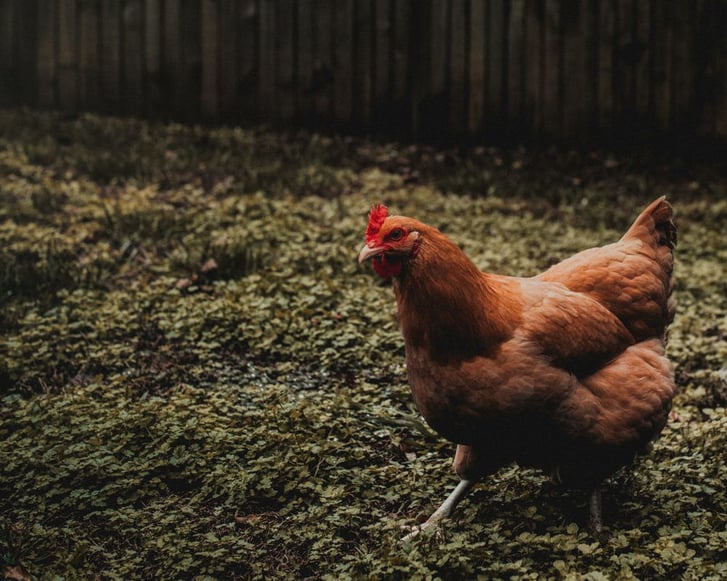_900.png)
Eggs categorized as ‘Free Run Eggs’, like those at Homestead Farm, have surged in popularity over the past few years. As Canadian consumers learn more about our food systems, they are increasingly considering the ethical and animal welfare conditions behind their food, especially when it comes to dairy and eggs.
And we should! At 100km Foods, we really value transparency and trace-ability when it comes to the products we source. We carefully vet all of our meat, dairy and egg producers to ensure that the animals are treated with care and dignity.
But things have shifted even further. As the term ‘free run’ became something consumers look for when purchasing eggs, the bigger, corporate controlled farms also wanted to cash in on the ethical impulse behind consumer purchases. Now, you can find free-run eggs in almost any grocery store.
"Free-Run", "Free Range", "Cage Free": What Do They Mean?
These days, grocery store egg cartons are emblazoned with claims that their eggs are “cage free”, “free-run”, or “free-range” but many consumers are still unsure what these claims actually mean and these choices matter.
Typical Canadian egg-laying hens are housed in battery cages, arrangements of rows and columns of identical cages connected together in a unit. These notoriously cramped cages give the average hen only 67 square inches of cage space.
The term "Cage Free" eggs simply means that hens are not confined to battery cages, but that’s about it. This doesn't mean they run freely indoors or outdoors, and there are no regulations governing what they are fed or what kinds of medications they are given.
"Free Run" eggs, as the name suggests, are eggs from hens that run free in an open concept barn with a variety of nests and perches. But, overcrowding can still be an issue if the flocks are too large.
Finally, "Free Range" means that the hens actually step foot outside (when the weather cooperates), but how often and how long is unregulated.
So how do you know what eggs to buy? The best way is to get to know the farmers who produce them!
What makes Homestead Farm Eggs different?
Now you might be wondering what makes the Free Run eggs from Homestead Farm a cut above the rest? Why can’t you find their Free Run eggs in the big retailers and grocery store chains?
We spoke to Pat White at Homestead Farm about what "Free Run" really means for her eggs.
Homestead Farm has been a long-time farm partner of 100km Foods and have been in operation since 1983. Homestead Farm is both a small grading station and has a flock of their own. They also source their eggs from neighbouring Amish and Mennonite farm communities nearby.
The major difference with Homestead Free Run eggs is that they come from small flocks that receive a high level of care. Like, REALLY small flocks. In total, Homestead sources eggs from only 55 different flocks with hundreds of birds. With larger free-run egg farmers, they have flocks easily numbering in the thousands.
Pat develops personal relationships with the farmers she sources from. She points out that in many of rural communities, looking after the chicken flocks and selling eggs is a job that often falls to women. In fact, for some of these women, it's one of their only sources of income to support their families.
Flocks tend to frighten very easily, which can disrupt their laying patterns. Since these flocks are an essential part of these farmers livelihoods, they want to make sure the hens keep laying. Therefore, it's a priority to ensure that their flocks are calm, happy, and cared for.
What Else Sets Homestead Free Run Eggs Apart?
Homestead is also a very small grading station that uses less automated machinery with a more involved approach. They have various employees at different stations along the line, all of them paying close attention to any imperfections. There’s even someone who has a special light they shine on each and every egg to detect any interior imperfections!
This kind of care and detail oriented attention to grading means Homestead grades 50 cases an hour. This is compared to the big guys who grade up to 400 cases an hour. Although they might grade slower, they make up for it in the top notch quality of all their eggs.
This is why we have adjusted the description on Homestead’s Free Run eggs. They aren’t just average eggs you can find in any grocery store - they truly are ‘Small-Flock.’



